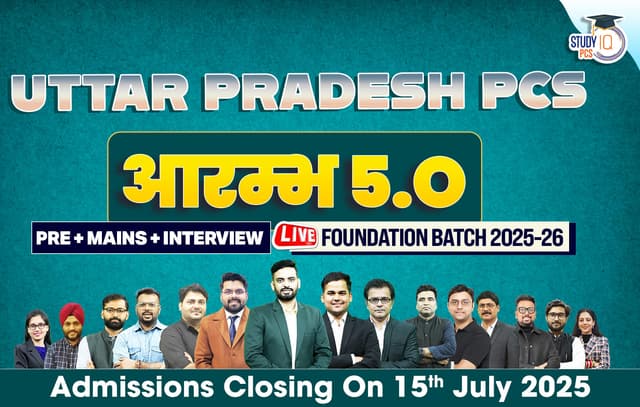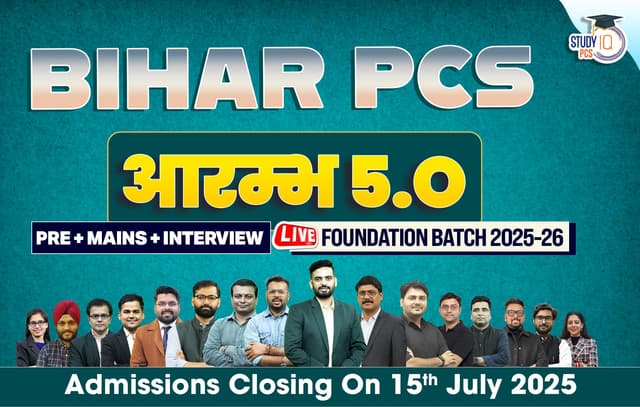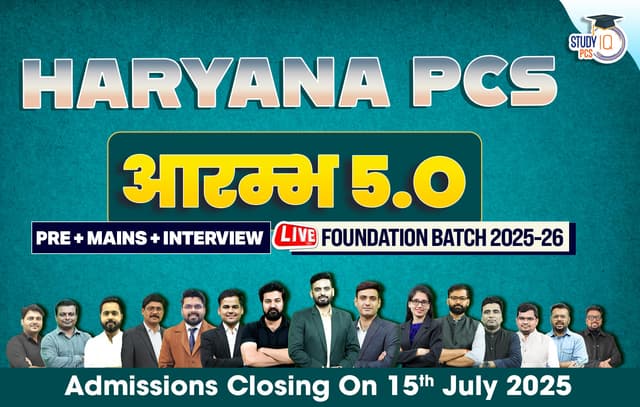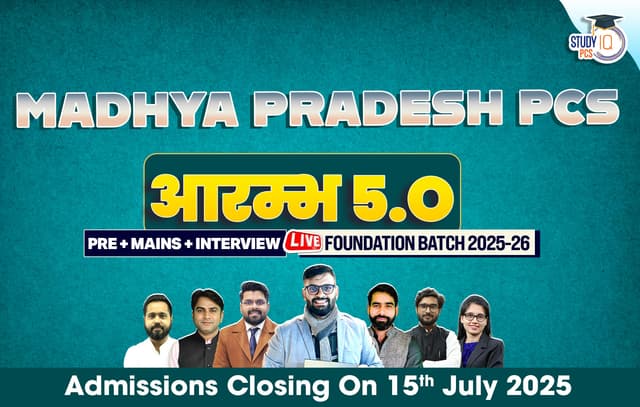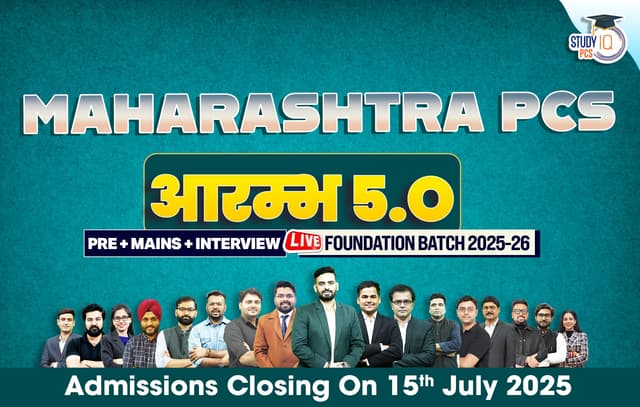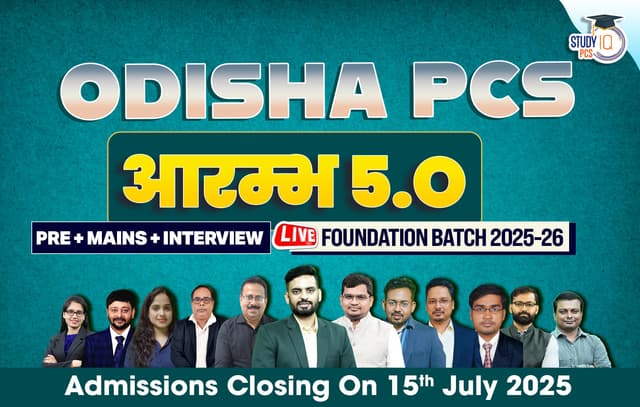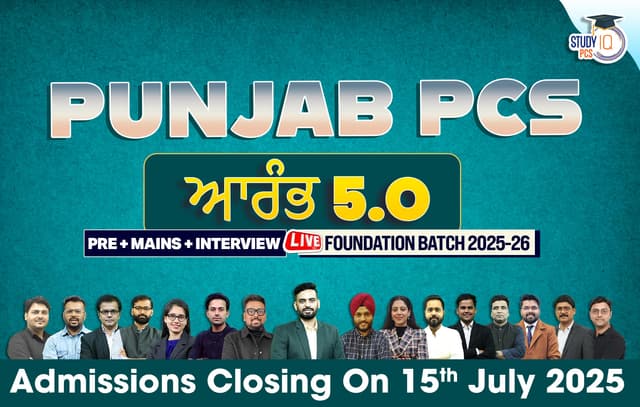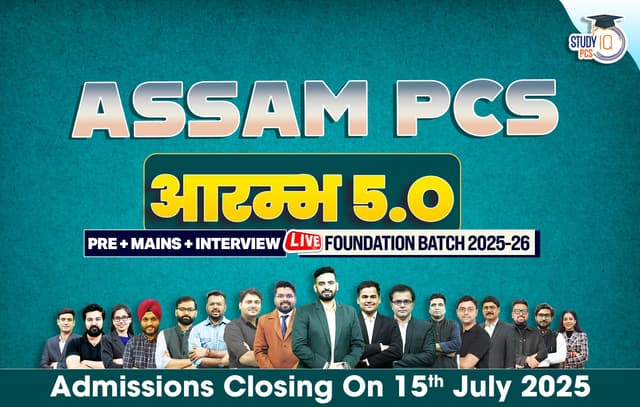Table of Contents
Uttarakhand Public Service Commission (UKPSC) has released the New UKPSC Syllabus along with the Exam Pattern for the candidate preparing for the Combined State Civil/Upper Subordinate Services Exam.. The syllabus and exam pattern serve as guiding frameworks, providing candidates with insights into the topics covered, marking schemes, and the overall structure of the examination process..
UKPSC Syllabus 2024
Uttarakhand PCS Syllabus is consist of two sections which is Prelims and Mains that correspond to the exam’s selection procedure. The exam’s first phase, the UKPSC Prelims, is qualifying in character. Only those applicants who pass the UKPSC Preliminary exam will be permitted to take the Mains exam. The candidates must show up for the interview after successfully passing the Mains. The sections of the UK PCS syllabus are:
- UKPSC Preliminary Examination
- UKPSC Mains Examination
- UKPSC Interview
| Overview | |
| Organization Name | Uttarakhand Public Service Commission (UKPSC) |
| Exam Name | Uttarakhand Combined State/Upper Subordinate Services Examination-2024 |
| UKPSC Notification 2024 | 13th March 2024 |
| UKPSC 2024 Selection Process |
|
| Join Us on WhatsApp | Click to Join |
UKPSC Exam Pattern 2024
Uttarakhand PSC sets the Exam pattern for the Upper PCS Recruitment. The UK PCS Exam Pattern consists of two stages, which are Prelims and Mains. Detail we have discussed this below
UK PCS Prelims Exam Pattern
| S. No. | Question Paper | Subject | No. of Questions | Marks | Time Allowed |
|---|---|---|---|---|---|
| 1. | First Paper | General Studies | 150 | 150 | 2 hours |
| 2. | Second Paper | General Aptitude Test | 100 | 150 | 2 hours |
- The preliminary examination is objective type with negative marking (1/4th mark deducted for each wrong answer).
- Merit list is based on marks obtained in the General Studies paper.
- The General Aptitude Test is qualifying (33% marks required).
UK PCS Mains Exam Pattern
| Question Paper | Subject | Time | Marks |
|---|---|---|---|
| 1 | General Hindi | 3 hours | 150 |
| 2 | Essay | 3 hours | 150 |
| 3 | General Studies-I (Indian Heritage, Culture, History, Geography, and Society) | 3 hours | 200 |
| 4 | General Studies-II (Governance, Constitution, Polity, Social Justice, and International Relations) | 3 hours | 200 |
| 5 | General Studies-III (Technology, Economic Development, Biodiversity, Environment, Security, and Disaster Management) | 3 hours | 200 |
| 6 | General Studies-IV (Ethics, Integrity, and Aptitude) | 3 hours | 200 |
| 7 | General Studies-V (Knowledge of State of Uttarakhand) | 3 hours | 200 |
| 8 | General Studies-VI (Knowledge of State of Uttarakhand) | 3 hours | 200 |
| Total marks for Main Examination | 1500 |
UKPSC Prelims Syllabus 2024
UKPSC Prelims is the first phase of the Selection Process. The General Studies and General Aptitude questions make up the UKPSC Prelims syllabus 2024. Each exam carries 150 marks. Hence, the Prelims exam now carries 300 total marks. Here, we offer the UK PCS syllabus for the two papers’ preliminary exams. Check the important facts about the Prelims exam.
Paper I: General Studies
- Indian Polity and Governance
- Current Events of National and International Importance
- Indian and World Geography
- Economic and Social Development
- Environmental Ecology, Biodiversity, and Climate
- Questions from the above-mentioned topics from Uttarakhand’s perspective will form a major part of the Paper.
Paper II: Civil Services Aptitude Test (CSAT)
- Comprehension
- Interpersonal skills including communication skills
- Logical reasoning and analytical ability
- Decision-making and problem-solving
- General mental ability
UKPSC Mains Syllabus 2024
UK PCS Mains is the second phase of the selection process. Candidates who qualify for the prelims exam are eligible for the Mains Exam. The Syllabus for UKPSC Mains is discussed in detail below.
Paper 1: History of India, National Movement, Society, and Culture
- Art Forms, Literature, and Architecture from ancient to modern times
- The Freedom Struggle – its various stages and important contributors/contributions from different parts of the country
- Modern Indian history from about the middle of the eighteenth century until the present
- Salient Features of Indian Society
- Diversity of India: Role of women and women’s organizations, population and associated issues, poverty and developmental issues, urbanization, their problems, and remedies
- Effects of globalization on Indian society: Social empowerment, communalism, regionalism & secularism
- The history of the world will include events from the 18th century such as the Industrial Revolution, world wars, redrawing of national boundaries, colonization, decolonization, political philosophies like communism, capitalism, socialism, etc., their forms, and effect on society
Paper 2: Indian Polity, Social Justice, and International Relations
- Indian Constitution’s historical underpinnings, evolution, features, amendments, significant provisions, and basic structure
- Functions and responsibilities of the Union and the States, issues, and challenges on the federal structure, devolution of powers and finances up to local levels, and challenges therein
- Important aspects of governance, transparency, and accountability, e-governance applications, models, successes, limitations, and potential; citizens charters, transparency & accountability, institutional and other measures
- Role of civil services in a democracy
- Structure, organization, and functioning of the Executive and the Judiciary Ministries and Departments of the Government; pressure groups and formal/informal associations and their role in the Polity
- Separation of powers between various organs, dispute redressal mechanisms, and institutions
- Development processes and the development industry: the role of NGOs, SHGs, various groups and associations, donors, charities, institutional and other stakeholders
- Welfare schemes for vulnerable sections of the population by the Centre and States and the performance of these schemes; mechanisms, laws, institutions, and Bodies constituted for the protection and betterment of these vulnerable sections
- Comparison of the Indian constitutional scheme with that of other countries
- Parliament and State Legislatures – structure, functioning, conduct of business, powers & privileges, and issues arising out of these
- Government policies and interventions for development in various sectors and issues arising out of their design and implementation
- Issues relating to the development and management of Social Sector/Services relating to Health, Education, and Human Resources
- Issues relating to poverty and hunger
- Important International institutions, agencies, and fora, their structure, mandate
- India and its neighborhood relations: Bilateral, regional, and global groupings and agreements involving India and/or affecting India’s interests; Effect of policies and politics of developed and developing countries on India’s interests; Indian diaspora
Paper 3: India and World Geography
- Important Geophysical phenomena such as earthquakes, tsunamis, Volcanic activity, cyclones, etc.
- Post-independence consolidation and reorganization within the country
- Salient features of the world’s physical geography: Distribution of key natural resources across the world (including South Asia and the Indian subcontinent)
- Factors responsible for the location of primary, secondary, and tertiary sector industries in various parts of the world (including India)
- Geographical features and their location: Changes in critical geographical features (including water bodies and icecaps) and flora and fauna and the effects of such changes
Paper 4: Economic and Social Development
- Major crops cropping patterns in various parts of the country, different types of irrigation and irrigation systems storage, transport, and marketing of agricultural produce and issues and related constraints; technology in the aid of farmers Issues related to direct and indirect farm subsidies and minimum support prices
- Indian Economy and issues relating to planning, mobilization of resources, growth, development, and employment
- Inclusive growth and issues arising from it
- Government Budgeting
- Food processing and related industries in India: scope and significance, location, upstream and downstream requirements, supply chain management. Land reforms in India
- Effects of liberalization on the economy, changes in industrial policy, and their effects on industrial growth
- Public Distribution System: objectives, functioning, limitations, revamping; issues of buffer stocks and food security
- Challenges to internal security through communication networks, the role of media and social networking sites in internal security challenges, basics of cybersecurity; money laundering and its prevention
- Security challenges and their management in border areas; linkages of organized crime with terrorism Various Security forces and agencies and their mandate
Paper 5: General Science and Technology
- Technology missions; economics of animal rearing.
- Infrastructure: Energy, Ports, Roads, Airports, Railways, etc. Investment models. Science and technology developments and their applications and effects in everyday life
- Achievements of Indians in science & technology; indigenization of technology and development of new technology
- Conservation, environmental pollution, and degradation, environmental impact assessment
- Awareness in the fields of IT, Space, Computers, robotics, Nanotechnology, biotechnology, and issues relating to intellectual property rights.
- Disaster and disaster management
Paper 6: General Aptitude and Ethics
- Ethics and Human Interface: Essence, determinants, and consequences of Ethics in human actions; dimensions of ethics; ethics in private and public relationships.
- Human Values – lessons from the lives and teachings of great leaders, reformers, and administrators; the role of family, society, and educational institutions in inculcating values.
- Attitude: content, structure, function; its influence and relation with thought and behavior; moral and political attitudes; social influence and persuasion.
- Probity in Governance: Concept of public service; Philosophical basis of governance and probity; Information sharing and transparency in government, Right to Information, Codes of Ethics, Codes of Conduct, Citizen’s Charters, Work culture, Quality of service delivery, Utilization of public funds, challenges of corruption Case Studies on above issues.
- Contributions of moral thinkers and philosophers from India and the world.
- Public/Civil Service Values and Ethics in public Administration: Status and problems; ethical concerns and dilemmas in government and private institutions; laws, rules, regulations, and conscience as sources of ethical guidance; accountability and ethical governance; strengthening of ethical and moral values in governance; ethical issues in international relations and funding; corporate governance.
- Aptitude and foundational values for Civil Service, integrity, impartiality and nonpartisanship, objectivity, dedication to public service, empathy, tolerance, and compassion towards the weaker sections.
- Emotional intelligence concepts, and their utilities and application in administration and governance.
Uttarakhand PCS Syllabus 2024 PDF
The UKPSC PCS Syllabus 2024 PDF is an essential resource for candidates preparing for the UK PCS Exam. General Studies and General Aptitude are the two papers that make up the UKPSC Prelims syllabus 2024. Nonetheless, the UKPSC Mains syllabus is extensive, so candidates must have a thorough understanding of each of the subjects listed below. The most recent Syllabus For UKPSC PDF is also available below.
Uttarakhand PCS Syllabus 2024 PDF English/Hindi – Download Link
UKPSC Interview 2024
The UKPSC interview for 2024 assesses candidates’ suitability for administrative roles. It evaluates their personality, communication skills, decision-making abilities, and knowledge of current affairs, governance, and ethics. Candidates are expected to demonstrate integrity, empathy, and a commitment to public service. The interview panel seeks to understand candidates’ perspectives on societal issues, their approach to problem-solving, and their readiness to handle the responsibilities of civil service. It’s an opportunity for candidates to showcase their readiness to serve the state of Uttarakhand effectively.
Also, Check UKPSC Salary 2024 for Combined State Upper Subordinate Services

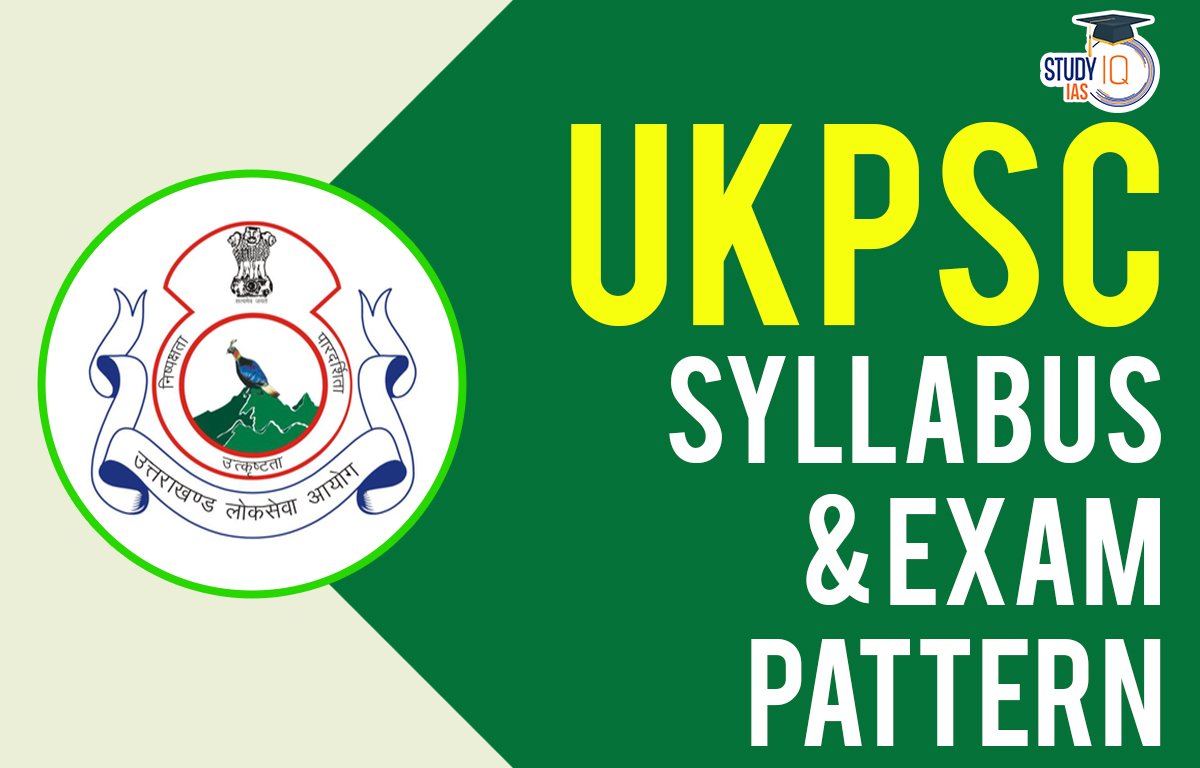
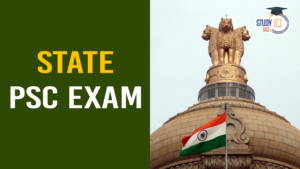 State PSC Exam 2025, Latest Updates for ...
State PSC Exam 2025, Latest Updates for ...
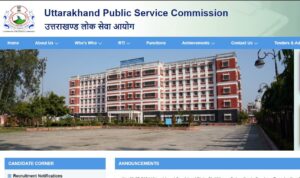 UKPSC Answer Key 2025 Out (Official): Do...
UKPSC Answer Key 2025 Out (Official): Do...
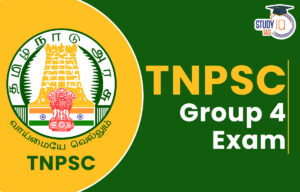 TNPSC Group 4 Exam Date 2025 Out: Check ...
TNPSC Group 4 Exam Date 2025 Out: Check ...
